Azerbaijan strengthens its position in Europe Zugzwang for the opponents
On May 16, 2025, the summit of the European Political Community (EPC) begins in Tirana, the capital of Albania — a key European platform for addressing current challenges. The President of Azerbaijan, Ilham Aliyev, is participating in the summit, underscoring Azerbaijan’s growing role in shaping the architecture of security and cooperation on the European continent. President Aliyev’s participation reflects Baku’s commitment to a proactive foreign policy, the strengthening of regional leadership, and the defence of national interests within international mechanisms.
Established in 2022, the European Political Community (EPC) brings together both EU member states and countries outside the European Union. This platform is designed for political dialogue, fostering mutual understanding, and coordinating efforts in the areas of security, economy, sustainable development, and international law.
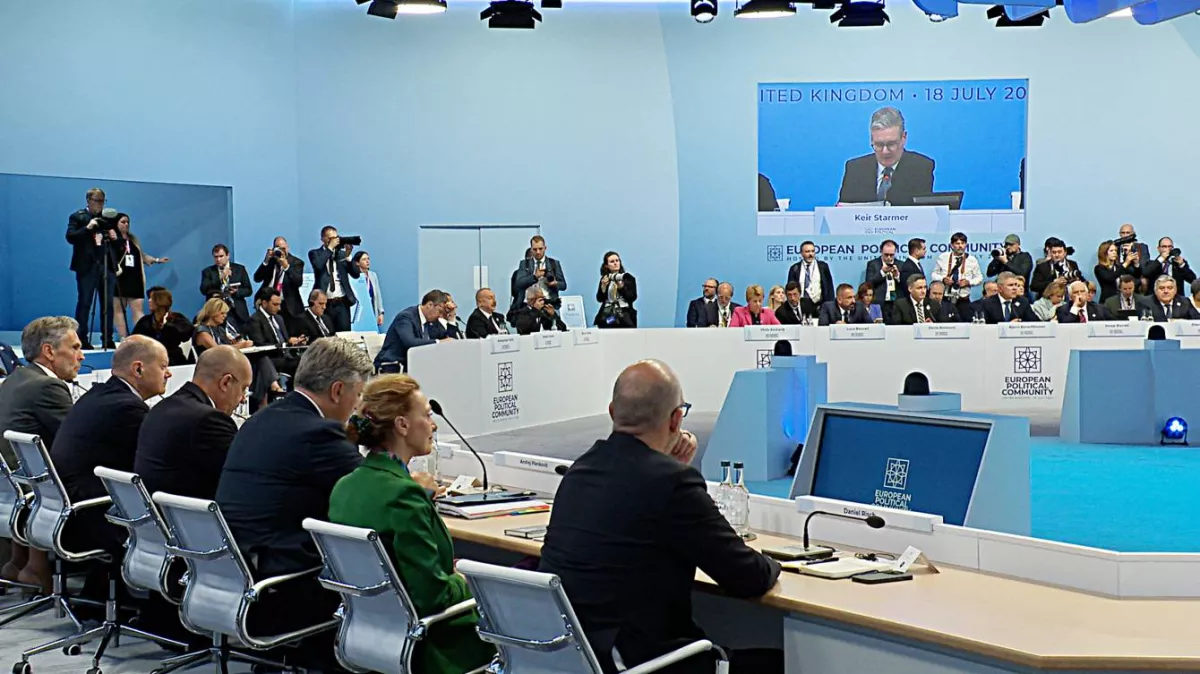
Azerbaijani President Ilham Aliyev is not attending the EPC summit for the first time — the head of state has previously participated in summits held in Prague, Moldova, and the United Kingdom, underscoring Baku’s consistent engagement in key pan-European processes.
On 18 July 2024, during the 4th EPC Summit in Oxford, the President delivered remarks at the opening plenary session and took part in a roundtable discussion on "Energy and Connectivity" — areas in which Azerbaijan has traditionally played the role of one of the leading regional actors.
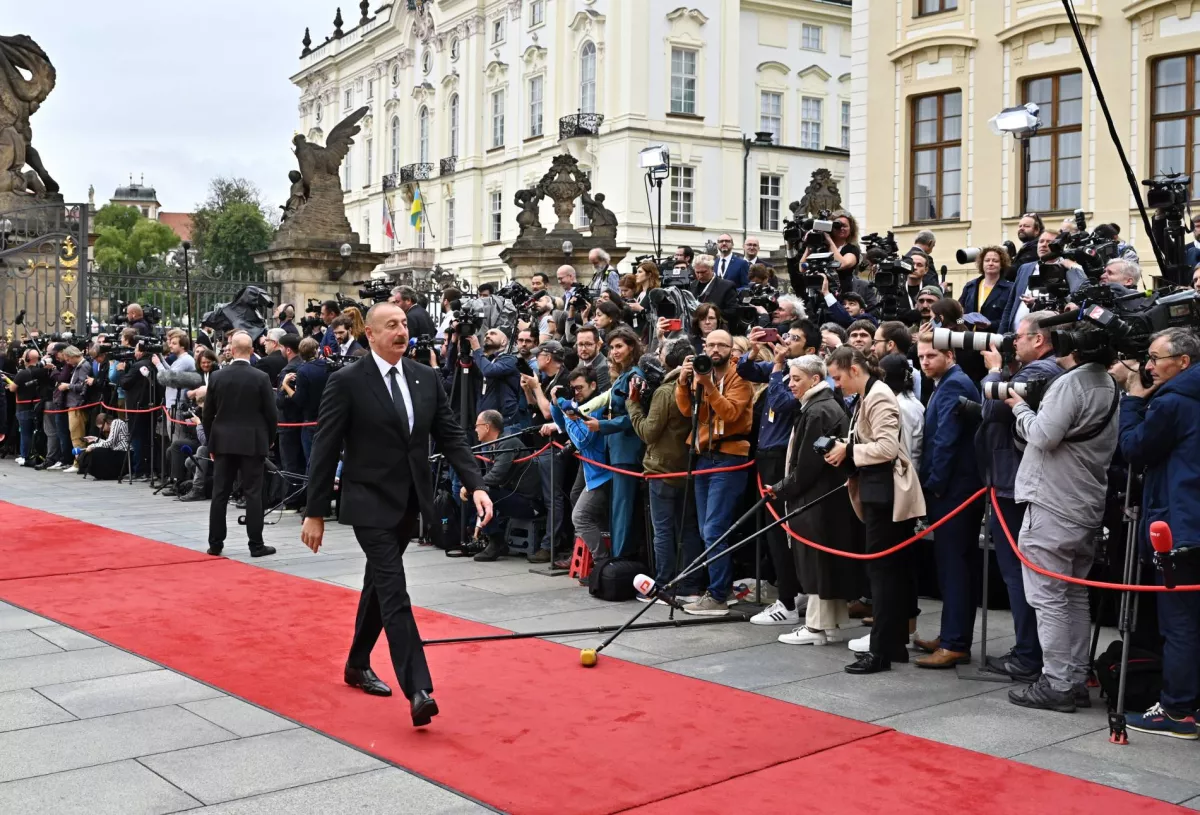
However, it was the inaugural summit of the European Political Community, held on 6 October 2022 in Prague, that marked a turning point in Azerbaijan’s strategic foreign policy trajectory. The participation of 44 countries lent the event significant political weight, and within this multilateral format, Azerbaijan did not assume a passive role, but rather emerged as one of the centres of power shaping the tone of the discussion.
At the Prague summit, in the presence of French President Emmanuel Macron, then-President of the European Council Charles Michel, and Armenian Prime Minister Nikol Pashinyan, Azerbaijani President Ilham Aliyev clearly and unequivocally articulated the key parameters for a peaceful settlement. The strength of his arguments and diplomatic engagement left no room for manoeuvre for the opposing side — ultimately, it was Baku’s position that formed the basis of the negotiating framework. This reflected the President’s consistent approach to the firm defence of national interests.
A diplomatic turning point took place in Prague: the attempts by France and Armenia to advance their own interests and narrative of the conflict ended in failure. President Ilham Aliyev succeeded in asserting an international legal agenda grounded in justice and sovereignty. This was not merely a victory at a single summit — it was a strategic demonstration that Azerbaijan is capable of setting the terms even on the most complex international platforms.
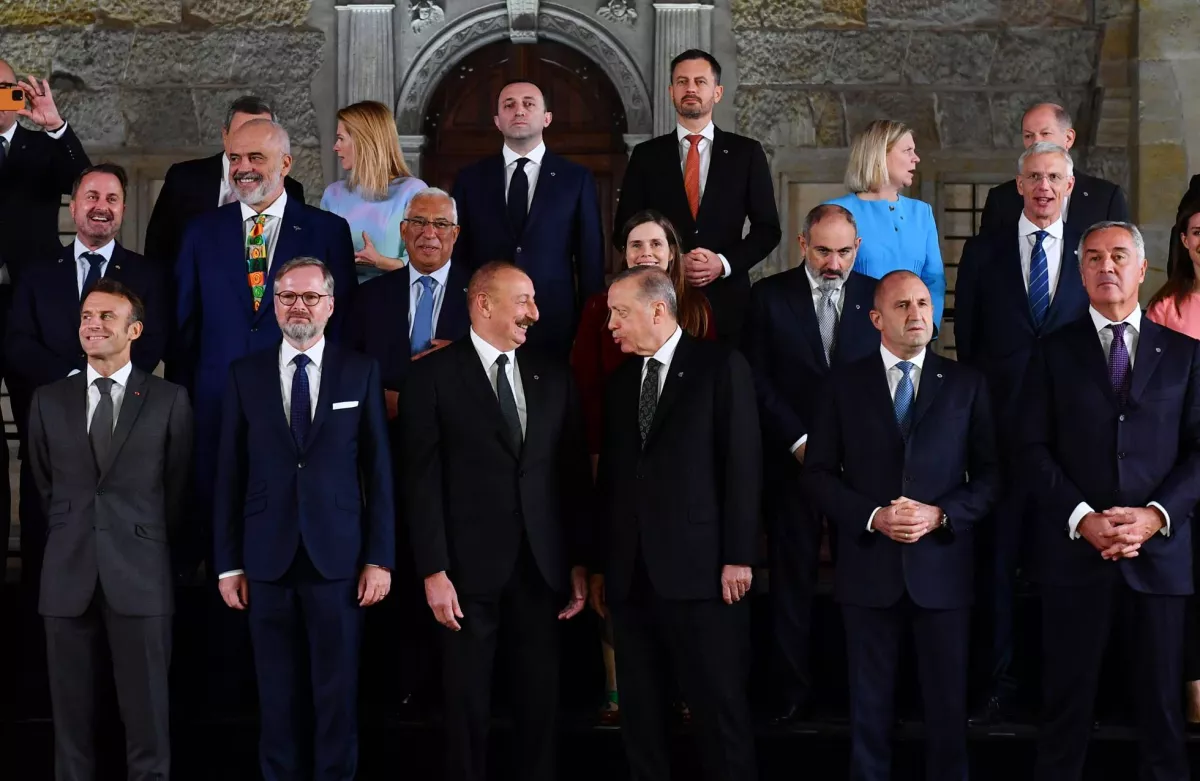
One of the central topics of discussion in Prague was the incident on the conditional Armenian-Azerbaijani border, provoked by the Armenian Armed Forces in September 2022. On the night of 12 to 13 September, Armenian forces launched a large-scale provocation in the directions of Dashkasan, Kalbajar, Lachin, and Zangilan, which led to intense armed clashes. This escalation was the first major outbreak of tension since the end of the 44-day war and was initiated by Yerevan in an attempt to alter the regional balance in its favour.
However, this effort ended in complete failure for Armenia. Units of the Azerbaijani Armed Forces swiftly and decisively suppressed the provocation, inflicting significant losses on the adversary and reaffirming the irreversibility of the new regional order established after 2020. It was yet another confirmation of the effectiveness of the "Iron Fist" strategy.
Ahead of the Prague summit, Armenian Prime Minister Nikol Pashinyan appealed to French President Emmanuel Macron for political support. Even then, it was evident that Paris — well known for its pro-Armenian stance — would attempt to use the summit platform to legitimise Yerevan’s actions. However, this course of action was doomed from the outset: the diplomatic balance of power no longer allowed for a one-sided agenda to be imposed on Azerbaijan.
The outcome of the negotiations in the Czech capital ultimately fell short of Armenia’s expectations. The firm and principled stance of President Ilham Aliyev left neither Armenia nor France in a position to blame Baku for the escalation. In Prague, it became clear that Armenia’s attempts to derail the peace agenda and evade the recognition of Azerbaijan’s territorial integrity were futile.
As a result of the meeting in Prague, both Azerbaijan and Armenia recognised each other’s territorial integrity and sovereignty, with the UN Charter serving as the basis for this understanding. The Joint Statement adopted following the quadrilateral meeting during the EPC summit reflected a significant step toward international recognition of the new historical realities established by Azerbaijan in the South Caucasus region. Specifically, it reaffirmed commitment to the 1991 Alma-Ata Declaration, which clearly defines the internationally recognised borders of the former Soviet republics, including Azerbaijan. This development undermined the plans of France and Armenia and marked a key milestone on the path to the full restoration of Azerbaijan’s sovereignty.
At the Prague summit, a fundamental agreement was also reached to hold a meeting in the near future of the commission on border delimitation between Azerbaijan and Armenia. This decision fully aligned with Baku’s interests, as border delimitation and demarcation are among the five key principles proposed by Azerbaijan within the framework of its initiative to normalise bilateral relations. In effect, Armenia gave its consent to one of the most crucial points of the peace agenda.
France’s attempt to use the security agenda as a pretext to expand its physical presence in the region — including by seeking to deploy a monitoring mission on Azerbaijani territory — was promptly thwarted by Baku’s resolute refusal. Firmly defending its sovereign position, Azerbaijan agreed to cooperate with the mission only in a format aligned with its national interests: the mandate was strictly limited to Armenian territory. At the same time, Baku expressed its readiness for pragmatic cooperation on confidence-building measures and advancing the border delimitation process.
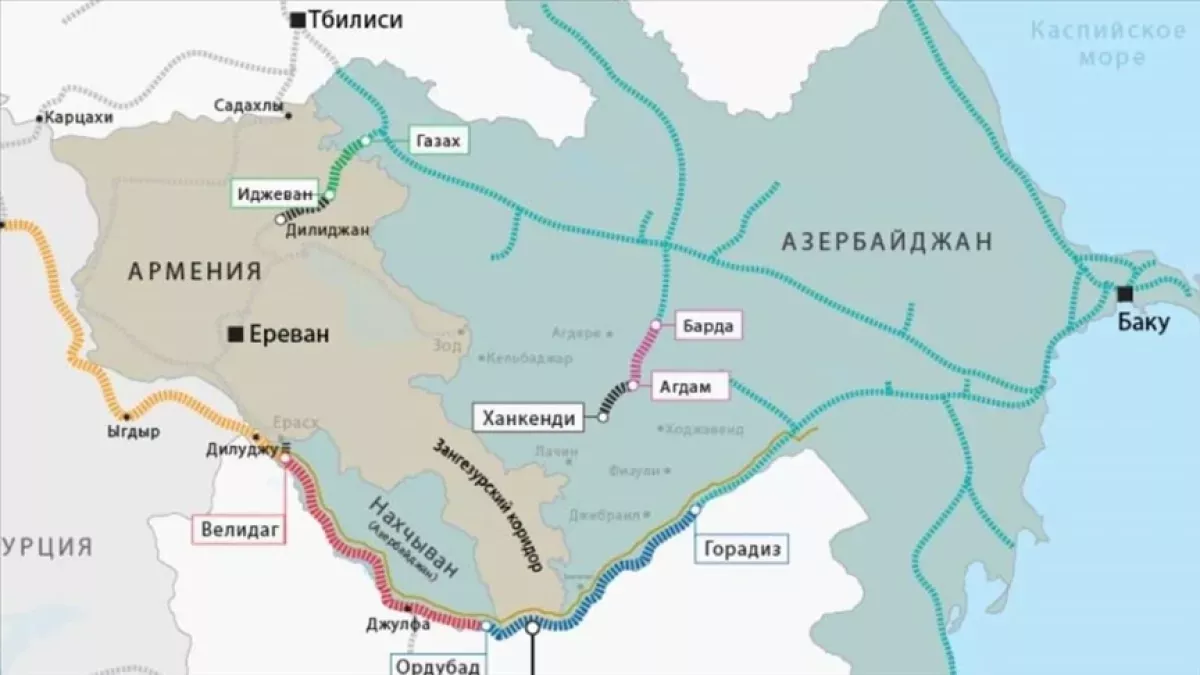
As for the issue of the Zangezur Corridor, its absence from the final statement of the Prague summit is due to the fact that it is governed by a separate Trilateral Statement dated 10 November 2020, signed by the leaders of Azerbaijan, Russia, and Armenia. Work on the implementation of the corridor is ongoing, with Baku steadily advancing this initiative as a key element in restoring full regional connectivity.
President Ilham Aliyev executed a successful diplomatic manoeuvre that placed his opponents in a position of zugzwang — where any move would only worsen their situation. In the end, the advocates of Armenian interests had no choice but to accept Azerbaijan’s position.
The Prague meeting also demonstrated that, within the EU agenda, Baku’s interests often take precedence over Yerevan’s aspirations. At the time, Russian peacekeepers were still stationed in Karabakh. However, the decisions made in Prague accelerated their withdrawal — a development that drew sharp criticism from certain Russian politicians and experts, as well as Armenian revanchist circles.
In April 2024, the Russian peacekeeping contingent departed the Karabakh region ahead of schedule. Thus, it was the Prague summit that laid the groundwork for the completion of the peacekeeping mission and the restoration of Azerbaijan’s full sovereignty over the region in September 2023.
Azerbaijan continues to defend its national interests firmly and consistently, not only in regional affairs but also on the international stage. This principled approach is well recognised by the European Union and taken into account by the world’s leading powers.
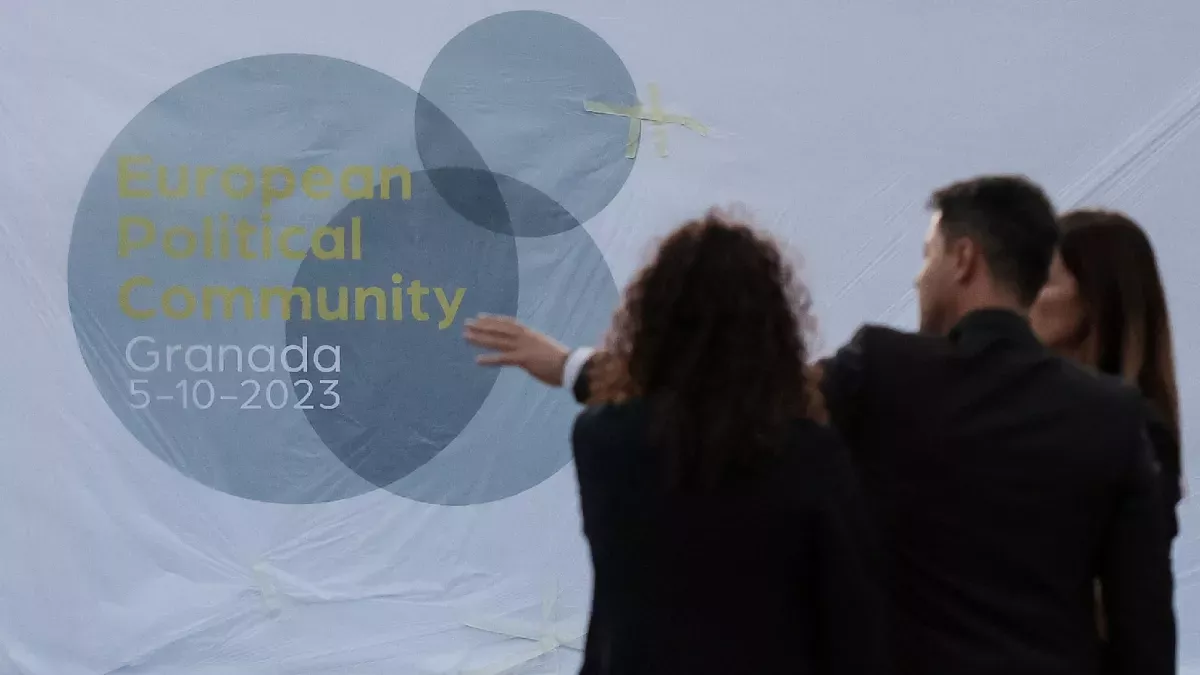
One of the clearest demonstrations of Azerbaijan’s commitment to the principles of sovereignty was President Ilham Aliyev’s decision to decline participation in the summit held in Granada in October 2023. A meeting with Armenian Prime Minister Nikol Pashinyan had been planned there, with the participation of EU, French, and German leaders. However, the Azerbaijani President refused to attend due to France’s obstructive stance and its opposition to the involvement of Türkiye. Through this move, President Aliyev sent a clear message: Azerbaijan would not allow external powers to impose conditions that run counter to its national interests.
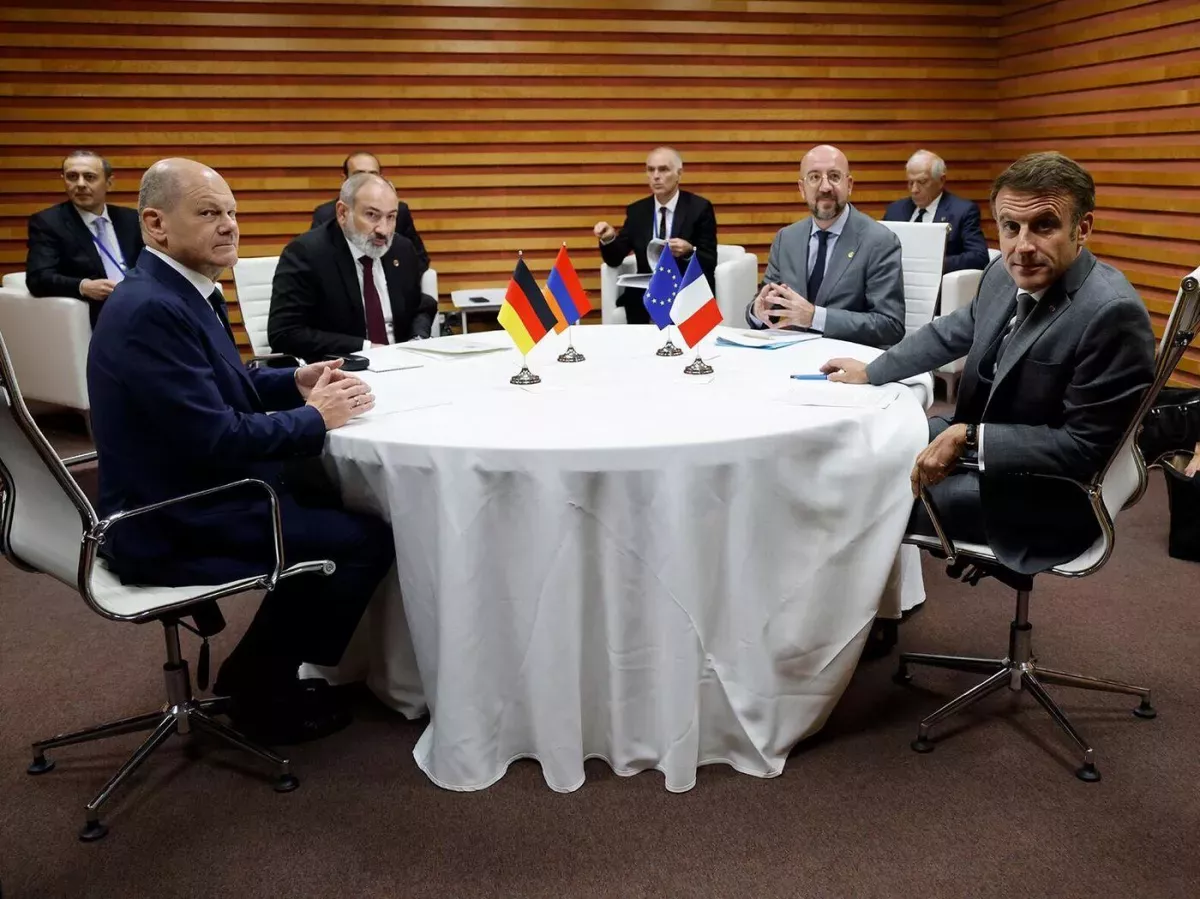
Later, in December 2023, at the forum titled “Karabakh: Back Home After 30 Years. Accomplishments and Challenges” organised by ADA University and the Centre of Analysis of International Relations (AIR Center), President Aliyev noted that the Prague meeting had been positively received, as it marked a moment when Armenian Prime Minister Nikol Pashinyan acknowledged Karabakh as part of Azerbaijan. Although Pashinyan later backtracked with contradictory statements, including sending a congratulatory letter to the so-called “NKR,” the overall outcome of the summit was still regarded as constructive.
“We considered as positive the result of the meeting in Prague. And we were ready to continue in this format. But unfortunately, a week after President of France in one of his TV interviews, used very strange and inappropriate wording about Azerbaijan. But what we've done? He actually cut himself from the process. Because our position was very clear - you can be a mediator, when you are neutral. If you take sides, you lose the chance to be a mediator. We cannot influence the country not to take sides. There are different reasons for that. But in this case, the chance to the mediator is lost. We officially announced that we do not consider any longer, as appropriate, any participation of any representative of France in normalization process between Azerbaijan and Armenia. Therefore, and for that particular reason, I did not go to Granada,” said President Aliyev.
Thus, the Azerbaijani leader once again made it clear to European capitals that Baku is fully independent in making foreign policy decisions, guided solely by national interests and the principles of international law. Thanks to well-considered diplomacy and a consistent stance, Azerbaijan’s position is respected not only in Europe but also beyond its borders.
The summit in Tirana opens new opportunities to strengthen Azerbaijan’s standing at the pan-European level. It can be expected that the agenda will address issues of energy security, regional cooperation, and sustainable peace in the South Caucasus. Ilham Aliyev’s participation in this summit demonstrates Baku’s readiness not only to actively shape the international agenda but also to defend its strategy on equal footing with leading European powers.








